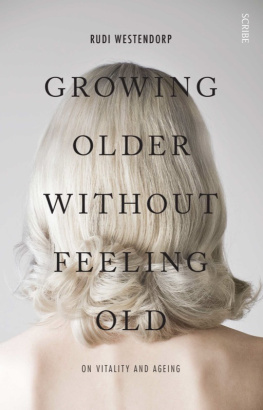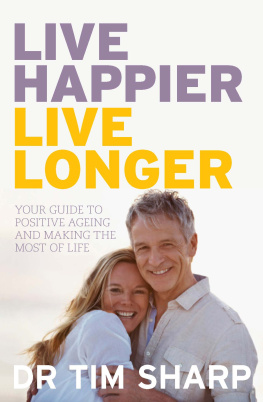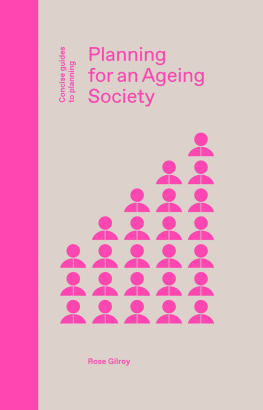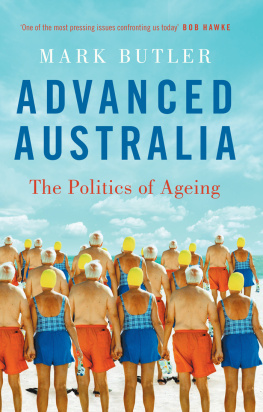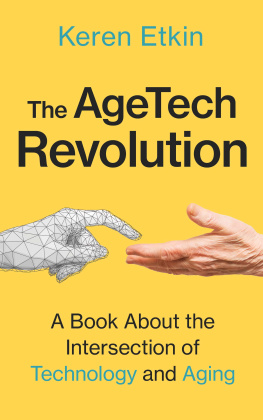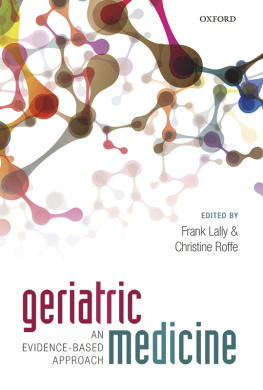
GROWING OLDER WITHOUT FEELING OLD
Professor Rudi Westendorp was trained at the Leiden University Medical Centre (LUMC) in the Netherlands, and specialised in intensive care and epidemiology. Later, he focussed on geriatrics and gerontology. In 2000, he was appointed professor of medicine, and, from 2005 to 2012, he was head of the Department of Gerontology and Geriatrics at the LUMC. In 2008, he founded and became the first director of the Leyden Academy on Vitality and Ageing, a research institute that provides training, conducts research, and initiates developments in the field of vitality and ageing. In addition, since 2012, he has been director of the VITALITY! programme, part of Medical Delta, an innovative partnership of academic and public institutions, and enterprises, in the south-west of the Netherlands. In 2015, he moved his workplace to Denmark, where he was appointed Professor of Old-Age Medicine at the University of Copenhagen.
Scribe Publications
1820 Edward St, Brunswick, Victoria 3056, Australia
2 John St, Clerkenwell, London, WC1N 2ES, United Kingdom
Originally published in Dutch as Oud worden zonder het te zijn by Atlas Contact in 2014
First published in English by Scribe in 2015
Copyright Rudi Westendorp 2014
Translation copyright David Shaw 2015
All rights reserved. Without limiting the rights under copyright reserved above, no part of this publication may be reproduced, stored in or introduced into a retrieval system, or transmitted, in any form or by any means (electronic, mechanical, photocopying, recording or otherwise) without the prior written permission of the publishers of this book.
The moral rights of the author and the translator have been asserted
National Library of Australia
Cataloguing-in-Publication data
Westendorp, Rudi, author.
Growing Older Without Feeling Old: on vitality and ageing / Rudi Westendorp.
1. AgingPrevention. 2. Older peopleHealth and hygiene. 3. LongevityHealth aspects.
613.0438
9781925106916 (AU edition)
9781925228137 (UK edition)
9781925113945 (e-book)
A CiP reference for this title is available from the British Library
scribepublications.com.au
scribepublications.co.uk
Contents
An accumulation of damage
All for the next generation
Rites of passage
Damage and repair
Longevity in families
Ageing is not necessary
The disposable soma
The cost of sex
Aristocratic fruit flies
Insurance premium levels
The impotence of prediction
An extraordinary find in Chad
The Gold Coast of Africa
Resistance to infectious disease
The benefit of grandmothers
What we used to die of
The new killers
A revolution in medical technology
An extra weekend every week
The gravedigger
From pyramid to skyscraper
Young and old-age dependency ratios
What causes cancer?
Normal ageing does not exist
The dementia epidemic
Frailty
Accelerated ageing
Oxygen radicals
Insulin and growth hormone
Should we eat less?
More years of illness
More years without impairment
The ragged end
What is healthy?
The Leiden -plus study
A rating for life
The new ages of man and woman
Optimism and zest for life
Grey is not black and white
is the new
Who is responsible for what?
A birthday rhyme
AN EXPLOSION OF LIFE
In the previous century, human existence underwent a radical change. There has been an explosion of life never before have so many people in the developed world lived for so long. It is the most drastic of the changes wrought in our society by the Industrial Revolution. Within a period of about a hundred years, average life expectancy rose from 40 to 80 years, and the likelihood of reaching the age of 65 increased three-fold, from 30 to 90 per cent. Pensioners have also made great gains; rather than ten, they can now look forward to twenty years of leisure when they retire. And then there is Madame Calment, the French lady who reached the grand old age of 122 in 1997. Babies born today can expect to live even longer; there is little doubt that some will live to be 135 years old.
All these additional years have not come to us because of a change in our bodies whether by genetic manipulation or any other means. No, our bodies are essentially the same as they always were. Our greatly increased longevity is the emphatic result of the enormous changes we have made to our environment. Unlike before, everyone in the West now has enough to eat, we have clean drinking water available straight from the tap, and many infectious diseases have been eradicated. In addition, the chance of being killed by (military) violence has been reduced to a minimum. So it is no wonder that we no longer die in childhood, and almost everyone reaches old age. Our ability to intervene ever more effectively to counteract the effects of illness or ageing means we are living even longer.
However, our emotional and social adaptation to this revolution lags very much behind. We are truly entrenched in outdated patterns. Who brings their children up in the realistic expectation that they will reach the age of 100? What parents simply shrug off the news that their son or daughter has failed to make the grade and will have to repeat a year at school? Rather than trying to prepare their children for life in the space of just twenty years, parents today should be teaching them that learning is a lifelong process, given that theyll need to be able to cope with circumstances that are constantly changing. And what will they themselves do, once their children are grown up? The time when we lived and worked solely to provide for our children, before retiring from professional and public life, is definitively over. Now, parents of children who have flown the nest wrestle with the question of how to fill the rest of their long lives.
This is not unfamiliar to me, as a 55-year-old. Longevity is partly determined by genetics, and, with a maternal grandmother who lived to 99, I may well reach the age of 90, or even 100. Horror! What am I going to do for the next twenty years, with two grown-up daughters who get along in life excellently by themselves? Of course, Im glad I didnt die young, and I look forward to a carefree old age. At the same time, I can see the end of my life looming ominously ahead, and I wonder if I will weather the storm well or not. A long life is an impressive achievement, but it is also a frightening prospect. Am I doomed to spend my final years with failing eyesight and hearing, stiff and incontinent? Or are these just the normal fears of a man in his fifties, thinking things can only go downhill from here?
Not everyone sees this increased longevity in a positive light. It makes people uneasy. Some speak of a disaster that has befallen us. There are estimates that half of the over-sixty-fives that have ever lived are currently alive today. Why has no one pulled the emergency brake? The certainties of the past have given way to prospects that do not yet appear in clear focus. And this has all happened extremely quickly. When we think of getting old, many of us look to the lives of our parents or grandparents as a beacon to help us navigate the stormy seas of life. But between the time of our grandparents and the time we become grandparents ourselves there are four generations, spanning a period of a hundred years or so. That is why it is wrong to think that we can take the life stories of our parents and grandparents as a blueprint for the way our own lives should unfold. Those images are no model for the life that awaits us. We can drink deeply from their skills and knowledge, but life moves forward, not back.
Next page
